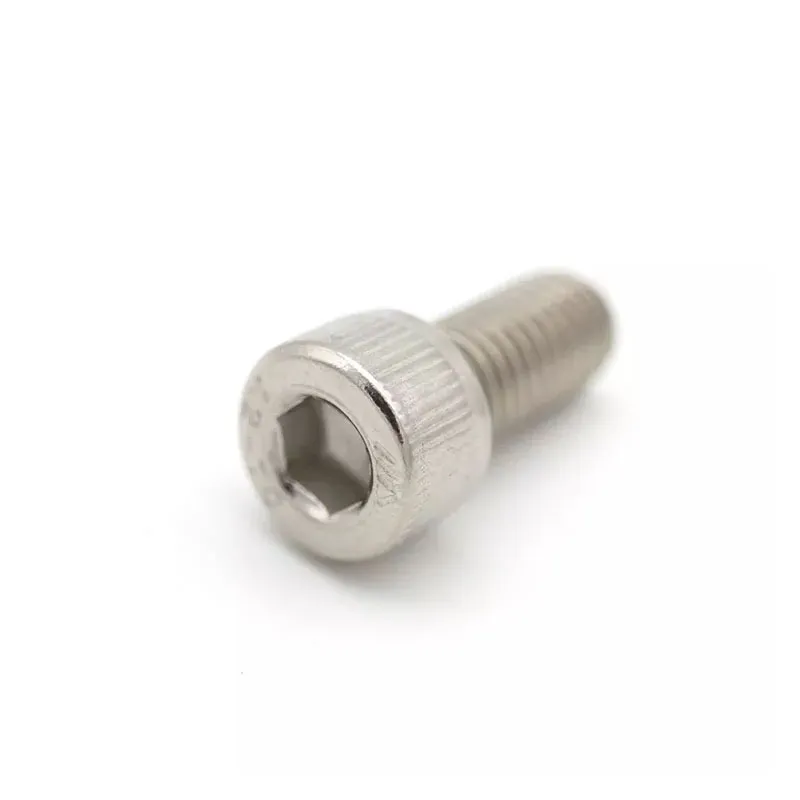

round flat washer
Dec . 12, 2024 10:04 Back to list
round flat washer
Understanding Round Flat Washers An Essential Component in Fastening
In the world of construction and manufacturing, seemingly small components play critical roles in ensuring the integrity and functionality of assemblies. Among these essential components are round flat washers, which are often overlooked but are fundamental in various applications. This article explores the characteristics, types, applications, and benefits of round flat washers, shedding light on why they matter in mechanical and structural contexts.
What is a Round Flat Washer?
A round flat washer is a disc-shaped piece of material, usually made from metal or plastic, with a hole in the center, enabling it to be placed over a bolt or screw. The primary function of a washer is to distribute the load of a fastener, such as a bolt or nut, over a larger surface area. This load distribution minimizes the likelihood of damage to the surface being fastened and helps secure connections against loosening due to vibration.
Characteristics of Round Flat Washers
Round flat washers are characterized by their flat, circular shape and uniform thickness. They come in various sizes, diameters, and thicknesses to accommodate different fasteners and applications. The material used can vary, with common options including stainless steel, carbon steel, plastic, and rubber. The choice of material often depends on specific application needs, including corrosion resistance, temperature tolerance, and load-bearing capacity.
Types of Round Flat Washers
Several types of round flat washers cater to different industrial needs
1. Standard Washers These are the most common type of flat washer, designed for general use in various applications. 2. Lock Washers Although they may not be perfectly round, lock washers are designed to prevent loosening under load. They are often used in high-vibration environments.
3. Fender Washers These washers are larger in diameter and are typically used to distribute the load over a larger surface area, particularly in applications where the surface might be soft or fragile.
4. Belleville Washers Also known as conical washers, Belleville washers provide a spring-like force, making them suitable for applications requiring tension adjustments.
5. Flat Retaining Washers These are used to retain components and prevent axial movement in assemblies, commonly found in machinery and automotive applications.
Applications of Round Flat Washers
round flat washer

Round flat washers are utilized across various industries, including construction, automotive, aerospace, and manufacturing. They serve numerous purposes, such as
- Bolted and Screwed Joints Washers are used under the heads of nuts and bolts to spread the load and prevent damage to the material being fastened. - Electrical Connectors In electrical applications, washers help secure connections and provide insulation between metal surfaces.
- Automotive Parts In vehicles, washers are used extensively to maintain structural integrity and prevent loosening of various components due to vibrations.
- Furniture Assembly Many modern furniture designs incorporate flat washers to ensure stable and secure joints.
Benefits of Using Round Flat Washers
Employing round flat washers in assemblies offers numerous advantages
- Load Distribution By spreading the load over a wider area, washers protect surfaces from damage and improve connection integrity.
- Prevention of Surface Damage Washers help prevent material deformation, scratches, or other damage that might occur during assembly.
- Vibration Resistance In mechanical systems, round flat washers enhance stability and help resist loosening caused by vibrations.
- Easy Installation The simple design of round flat washers facilitates easy installation, making them a practical choice for various applications.
Conclusion
Round flat washers, though small, are integral components in many mechanical systems. Their ability to enhance load distribution, protect surfaces, and resist loosening makes them invaluable in construction, automotive, and manufacturing applications. Understanding the types and applications of round flat washers can help engineers and builders make informed decisions, ensuring reliable and durable assemblies for their projects. In an era where precision and reliability are paramount, appreciating the role of these humble components can lead to better, more secure designs.
Latest news
-
High-Strength Hot Dip Galvanized Bolts - Hebei Longze | Corrosion Resistance, Customization
NewsJul.30,2025
-
Hot Dip Galvanized Bolts-Hebei Longze|Corrosion Resistance&High Strength
NewsJul.30,2025
-
High-Strength Hot-Dip Galvanized Bolts-Hebei Longze|Corrosion Resistance&High Strength
NewsJul.30,2025
-
Hot Dip Galvanized Bolts-Hebei Longze|Corrosion Resistance&High Strength
NewsJul.30,2025
-
Hot Dip Galvanized Bolts - Hebei Longze | Corrosion Resistance, High Strength
NewsJul.30,2025
-
High-Strength Hot Dip Galvanized Bolts-Hebei Longze|Corrosion Resistance, Grade 8.8
NewsJul.30,2025

